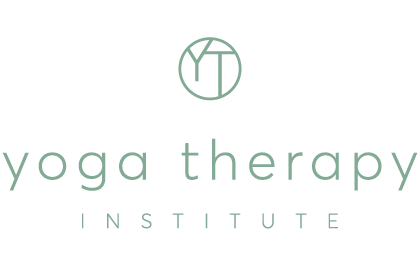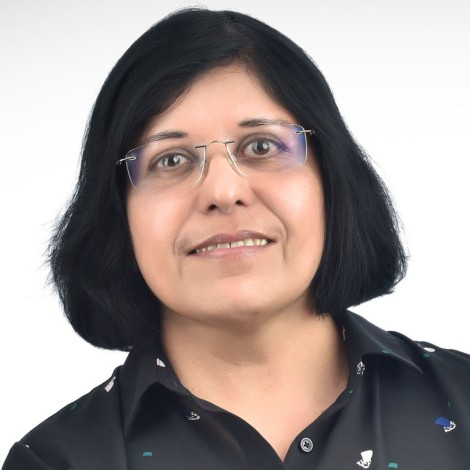Module 1 – Integrating Polyvagal Theory with Yoga
Integrating Polyvagal Theory with Yoga is of special importance to Yoga therapists and Yoga teachers. Polyvagal Theory (PVT) was introduced by Stephen Porges PhD in 1994. The PVT puts forth new ideas about how shifts in the involuntary or autonomic nervous system balance can lead to lead three distinctly different states (viz., fight-or-flight, freeze and social engagement). These states influence our physical and psychological/intellectual functions very differently. The differences between these states are the differences between coping with stress in a healthy way and stress management strategies which are unhealthy and lead to serious mental and physical health consequences. The differences between these states also show up in a wide spectrum of possibilities in social engagement and interpersonal interactions.
What is most interesting for Yoga professionals is that there are possible ways one can strive to achieve the most desirable of these three states (i.e., social engagement), while consciously using specific strategies to avoid undesirable ‘fight-or-flight’ and ‘freeze’ states. Certain Yoga practices are considered especially likely to allow one to move into the physiological state associated with ‘social engagement’.
You Will Learn:
- Basics about the Autonomic Nervous System, especially the vagus nerve, of relevance to the PVT.
- The three states described in the PVT, viz., fight-or-flight, freeze and social engagement and the characteristics of each.
- Easy techniques to access the state conducive to social engagement, including Yoga practices
The Polyvagal theory and trauma workshop helped me understand the physiological effects of trauma. Shirley Telles included relevant strategies to facilitate safe yoga practices for students that may be living with trauma.
Deborah Johnstone, Yoga Teacher
Module 2 – The Polyvagal Theory and Healing Trauma
When faced with an overwhelming threat the human body has certain protective responses. When the threat is no longer present, our physiology should be able to return to the resting and balanced state. However sometimes the threat is so damaging to physical and psychological functioning that this expected restoration cannot and does not take place. This often occurs post-trauma.
There are different stages in the process of healing from trauma. Four typical stages include: acknowledgment, safety, processing with rationalizing and restoration of balance. Acknowledgment that trauma occurred requires preparation as the person moves beyond denial of trauma. Denial is the unconscious response to create emotional distance between the traumatic event and oneself and the person needs to go beyond this stage into acknowledging that trauma occurred. This is essential for healing.
During the other stages in the healing process, understanding of the polyvagal theory can help – that is, ‘vagus nerve activity – which type, when and how’. This knowledge can help the person be active, empowered and self-efficacious in their healing. The knowledge can also help the process of healing to be at the pace and level of focus suited to each person’s mental and physical status.
I thoroughly enjoyed this workshop as it gave me a greater understanding of the workings of trauma and how to offer Yoga specifically for trauma in my Yoga Therapy practice. Dr Shirley Telles is a knowledgeable lecturer and she gave a clear and concise presentation which was informative and easy to follow.
Sharron Williams, Yoga Therapist
You Will Learn:
- Stages of trauma
- The Autonomic Nervous System (ANS) and trauma responses
- Healing trauma through understanding the ANS trauma responses and how to go beyond them
- Adding principles from Yoga
- Yoga techniques to enhance ventral vagus nerve activity
- Yoga practices for different stages of trauma healing
Each module of this workshop includes two presentations, Q&A and a short Yoga practice that can be done in the chair.
Who Should Attend?
- Yoga therapists, Yoga teachers and Yoga teacher trainees
- Therapists, health professionals and complementary therapists. Medical doctors, mental health professionals and complementary therapists
This course was informative and educational for me personally as a Yoga Teacher. It confirmed my current knowledge and gave me new techniques to integrate into my classes and one on one sessions.
Jolan Tassone
Benefits of Attending this Workshop:
- Learn from Dr. Shirley Telles, world leading Yoga researcher, scientist and presenter
- Learn practical tools and techniques that you can apply immediately with your students and clients
- Educate yourself about the safest and most effective way to assist yourself, your clients and students experiencing trauma
- Deepen your knowledge of Yoga as a therapeutic practice
- Yoga therapists/teachers are eligible for 3 Continuing Professional Development point
- A Certificate of Attendance is available on completion
- The recordings will be available to you for 12 months so you can review the material
You will need: a computer and stable internet connection.
If you can’t attend live, you will be able to watch the recordings.
Integrating Polyvagal Theory with Trauma informed Yoga:
Delivery: Available On Demand Now.
3 hours of recorded content are included.
Cost: $247. Prices include GST.

